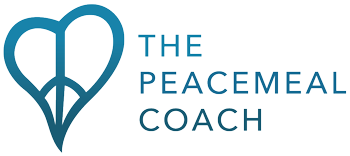I give one piece of advice to all of my clients. I tell them: Trust yourself to make treatment decisions for your anorexic teen. But trusting yourself when you are devastated by your child’s illness is so much easier said than done.
It was my ability to trust myself that enabled me to adjust my daughter’s treatment when it wasn’t effective. With practice. parents can learn to feel confident in their ability to find the best treatment for their anorexic teens and to support them all the way to recovery.
At the same time I was preparing to become a certified life coach, my daughter was diagnosed with anorexia. I am extremely grateful for the life coaching tools and skills I practiced while training to become certified. Without the knowledge of how to manage my mind, I can’t imagine how I could have handled the traumatic impact that anorexia has had on my daughter.
The twists and turns of anorexia have given me a lot of practice applying life coaching tools. Had I left my brain unsupervised, and I hadn’t had the knowledge that life coaching provided, I would have succumbed to terrible thoughts and negative emotions. I would have let the fear, overwhelm, uncertainty, and helplessness keep me from being able to help my daughter.
I believe that parents are powerful advocates for their anorexic teens when they are able to tap into their feelings of love, compassion, and determination on behalf of their child. It is understandable that a mom or dad would get caught up in the drama of the anorexia and its effects on the entire family. But, by learning to manage their minds, parents can learn to trust themselves. They can learn to generate confidence and compassion on the road to their child’s recovery.
I experienced three significant situations with members of my daughter’s treatment team that helped me learn to trust myself to make treatment decisions.
1. The Pediatrician
My daughter’s pediatrician had no experience treating anorexia, but she was still willing to see her immediately, and she took on the responsibility of rapidly learning as much as she could about eating disorders so she could medically care for her. The doctor was quite cautious and had a tendency to overreact out of an abundance of caution. It would have been easy for me to freak out, but I was careful to observe my thoughts and act accordingly.
When my daughter’s glucose levels were volatile in the beginning, her doctor recommended hospitalization. Because my daughter was eating, and she had no symptoms of hypoglycemia (shakiness, heart palpitations, lightheadedness, or confusion), and all of the rest of her labs were normal, I decided it was safe to monitor her glucose at home and keep an eye on her for any symptoms that would make hospitalization advisable.
2. The Registered Dietitian
I trusted myself again when her R.D. (registered dietitian) gave her a hunger scale and encouraged her to monitor herself at every meal and to stop eating when she reached a certain level on the scale. At that time, I was planning and plating all food and making all eating decisions for her, and she was required to eat what was on her plate.
Had my daughter been allowed to, she would have decided not to eat any more after a few bites, and our progress would have been lost. I knew that she was not ready to eat independently, so after another session that did not support our treatment choices, it was time to find a new R.D.
3. The Therapist
In the same way, her therapist spent most of the time working on her social skills and encouraging her to separate from her dad and me at a time when she was too early in treatment for her brain to have healed sufficiently. She thought it was important for her to gain independence from her parents when we were working on getting her to trust us to feed her what she needed to heal from anorexia.
The most appropriate and useful work would have been in support of what we were doing to get her to eat. She could have also benefited from learning some coping skills to help her manage the extreme anxiety she was experiencing as a result of no longer being able to restrict her food intake.
The therapist’s emphasis on social skills and developing autonomy made it clear that she was operating from a model that didn’t support the family based treatment guidelines that we had chosen. I really wanted my daughter to have a therapist because I wanted her to get relief from the horrible anxiety and depression that she was going through, but I trusted my instincts instead of doubting them, and made the decision to look for another therapist.
It is easy to lose confidence when you don’t have a treatment team that is effectively treating your daughter. Because it may take a while, and require several adjustments along the way to assemble the right treatment team, it’s crucial to have the ability to generate thoughts that will keep you going when you seem to have encountered a dead end. If you feel your confidence is waning, ask yourself: What would I have to be thinking to feel confident that I am doing what’s best for my child?
Write that thought down, look at it often, practice it, believe it, and use it to draw on your confidence whenever you need it.
The thought that I turn to when I need a boost in confidence is : I trust myself to determine the treatment that is best for my daughter.
You will never regret believing in yourself and trusting that you are doing what is best to get your child the treatment she needs.
I would love to help you become more confident navigating your child’s anorexia treatment. Please email me at jenni@peacemealcoach.com to schedule a free 20-minute mini coaching session.






